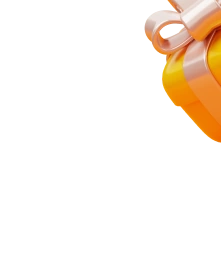Understanding Why Dogs Swallow Repeatedly: Exploring the Possible Causes
Dogs are known for their quirky behaviors, and sometimes they engage in actions that leave us puzzled. One such behavior is when a dog repeatedly swallows, often without any apparent reason. As pet owners, it is our responsibility to ensure the well-being of our furry companions and address any unusual behaviors promptly. In this article, we will delve into the various reasons why dogs may exhibit this repetitive swallowing behavior and explore potential underlying causes.
At first glance, it may seem like a harmless habit, but persistent swallowing can indicate an underlying issue that requires attention. While occasional swallowing is a normal part of a dog’s digestive process, repetitive swallowing, especially when accompanied by other symptoms, may indicate an underlying health concern. It is crucial to observe your dog closely and look for any additional signs that could provide valuable clues.
One possible cause of repeated swallowing in dogs is gastrointestinal discomfort. Just like humans, dogs can experience indigestion, acid reflux, or an upset stomach. These conditions can lead to discomfort and irritation, causing dogs to swallow excessively as a way to alleviate the discomfort. Other signs of gastrointestinal issues may include vomiting, diarrhea, loss of appetite, or changes in stool consistency.
Another potential cause could be dental problems. Dogs, especially those who haven’t received proper dental care, may develop dental issues such as gum disease, tooth decay, or abscesses. These oral health problems can cause pain and discomfort, leading to excessive swallowing as a response. Additionally, dogs may also exhibit other signs like bad breath, reluctance to eat, or pawing at their mouth.
Furthermore, certain respiratory issues can contribute to repetitive swallowing in dogs. Respiratory infections, allergies, or even foreign objects lodged in the throat can cause discomfort, leading to excessive swallowing. If your dog is also coughing, wheezing, or displaying difficulty breathing, it is essential to consult a veterinarian for a thorough examination.
Additionally, anxiety and stress can manifest in various ways in dogs, one of which may be repetitive swallowing. Dogs experiencing anxiety or stress may engage in compulsive behaviors, such as excessive licking, pacing, or even swallowing. Identifying and addressing the underlying cause of anxiety, whether it be separation anxiety, fear, or environmental stressors, can help alleviate the swallowing behavior.
In conclusion, when our beloved dogs exhibit repetitive swallowing, it is crucial to investigate the possible causes and seek appropriate care. Gastrointestinal discomfort, dental problems, respiratory issues, and anxiety are among the potential reasons for this behavior. By observing our dogs closely, noting any accompanying symptoms, and consulting with a veterinarian, we can ensure their well-being and provide them with the necessary support and treatment they need.
Exploring the Possible Causes of Repetitive Swallowing in Dogs
Gastrointestinal Discomfort
One of the primary reasons why dogs may exhibit repetitive swallowing is gastrointestinal discomfort. Just like humans, dogs can experience indigestion, acid reflux, or an upset stomach. These conditions can cause discomfort and irritation, leading to excessive swallowing as a way to alleviate the symptoms. If your dog is swallowing repeatedly and also showing signs of gastrointestinal issues such as vomiting, diarrhea, loss of appetite, or changes in stool consistency, it is essential to consult with a veterinarian. They can conduct a thorough examination and recommend appropriate treatment options to address the underlying cause.
Dental Problems
Dental problems can also contribute to repetitive swallowing in dogs. Poor dental hygiene can lead to gum disease, tooth decay, or abscesses, which can cause pain and discomfort. Dogs may swallow excessively as a response to alleviate the discomfort in their mouth. If your dog is exhibiting repetitive swallowing along with signs like bad breath, reluctance to eat, or pawing at their mouth, it is crucial to have their dental health assessed by a veterinarian. Regular dental care, including professional cleanings and proper at-home dental hygiene, can help prevent and address dental issues.
Respiratory Issues
Respiratory problems can be another factor behind repetitive swallowing in dogs. Respiratory infections, allergies, or the presence of foreign objects in the throat can cause discomfort, leading to excessive swallowing. If your dog is also coughing, wheezing, or experiencing difficulty breathing, it is crucial to seek veterinary attention promptly. A veterinarian can conduct a thorough examination of the respiratory system and recommend appropriate treatment to alleviate the symptoms and address the underlying cause.
Anxiety and Stress
Anxiety and stress can manifest in various ways in dogs, and repetitive swallowing can be one of the signs. Dogs experiencing anxiety or stress may engage in compulsive behaviors, and excessive swallowing can be a part of that. Identifying and addressing the underlying cause of anxiety is crucial for managing the swallowing behavior. Separation anxiety, fear, or environmental stressors can all contribute to anxiety in dogs. Consultation with a professional dog behaviorist or veterinarian experienced in behavioral issues can help develop a tailored plan to reduce anxiety and manage the associated behaviors.
Conclusions
Repetitive swallowing in dogs can indicate an underlying issue that requires attention. Gastrointestinal discomfort, dental problems, respiratory issues, and anxiety are among the potential causes of this behavior. It is essential to observe your dog closely, note any accompanying symptoms, and consult with a veterinarian for a thorough examination and appropriate treatment recommendations. By addressing the underlying cause, we can ensure the well-being of our furry companions and help them lead a happy and healthy life.
Practical Recommendations for Addressing Repetitive Swallowing in Dogs
1. Veterinary Examination
If your dog is exhibiting repetitive swallowing, it is crucial to schedule a veterinary examination. A veterinarian can perform a thorough physical examination, assess your dog’s overall health, and identify any underlying medical conditions that may be causing the behavior. This will help determine the appropriate course of action and treatment plan.
2. Dental Care
Regular dental care is essential for preventing dental problems that can contribute to repetitive swallowing. Ensure that your dog receives routine dental check-ups and professional cleanings as recommended by your veterinarian. Additionally, establish a daily dental hygiene routine at home, such as brushing your dog’s teeth with a dog-friendly toothbrush and toothpaste.
3. Dietary Modifications
In cases where gastrointestinal discomfort is the cause of repetitive swallowing, dietary modifications may be beneficial. Consult with your veterinarian to determine if a change in diet is necessary. They may recommend a specialized diet or specific feeding guidelines to address your dog’s digestive issues and alleviate discomfort.
4. Environmental Enrichment
Anxiety and stress can contribute to repetitive swallowing in dogs. Providing environmental enrichment can help alleviate stress and distract your dog from engaging in compulsive behaviors. Offer interactive toys, engage in regular exercise, and provide mental stimulation through activities like puzzle toys or training sessions. Creating a calm and secure environment for your dog can help reduce anxiety levels.
5. Behavior Modification Techniques
If anxiety or stress is the underlying cause of repetitive swallowing, working with a professional dog behaviorist can be beneficial. They can develop a behavior modification plan tailored to your dog’s specific needs. Techniques such as desensitization, counter-conditioning, and positive reinforcement training can help reduce anxiety and modify the compulsive behavior.
6. Medication and Supplements
In some cases, medication or supplements may be prescribed to help manage anxiety, gastrointestinal discomfort, or other underlying conditions contributing to repetitive swallowing. Consult with your veterinarian to determine if medication or supplements are appropriate for your dog’s specific situation. Follow their guidance regarding dosage, administration, and potential side effects.
7. Regular Veterinary Check-ups
Even after addressing the repetitive swallowing behavior, it is important to maintain regular veterinary check-ups. This will help monitor your dog’s overall health, address any potential relapses or new issues, and ensure that they continue to receive the necessary care and support.
Remember, every dog is unique, and the appropriate course of action may vary. It is crucial to consult with a veterinarian or professional dog behaviorist for personalized recommendations and guidance based on your dog’s specific needs and circumstances. By taking proactive steps and addressing the underlying causes, you can help your dog overcome repetitive swallowing and improve their overall well-being.





















